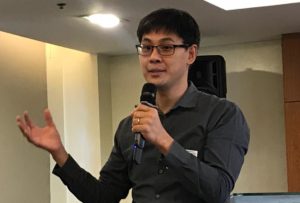Question: It looks like some restrictions will still remain even after the enhanced community
quarantine (ECQ) is lifted. What are the best ways to cope financially after the lifting of the ECQ? Asked at “Ask a Friend, Ask Efren” FREE service at www.personalfinance.ph, SMS, Viber, LinkedIn, WhatsApp, Instagram and Facebook. Answer: First, you need to accept that it will not be business as usual, at least not immediately. Until there is a vaccine for SARS coronavirus II and a drug for COVID-19, social distancing will continue to put a damper on business and in social interaction. Here are some ways to cope with the new normal on the other side of the ECQ.Cash management – Pay the correct taxes on or before the extended deadline. Paying your taxes will help the government fund the stimulus package it approved to fight the ill effects of COVID-19.
The ECQ probably highlighted some of the excesses in your budget. Run your budget after the ECQ as if you were still under quarantine, focusing on the needs as income may still be delayed, reduced or even not forthcoming. After you have shored up your operating expense fund and settled or restructured debts, rebuild your emergency fund with more months of equivalent expenses. Also, be aware of the short-term financial assistance that you may get from the government to help you manage your cash, such as the COVID Adjustment Measures Program, that is applied for through employers, and the Tulong Pangkabuhayan sa Displaced/Underprivileged Workers Debt management. Bills would have piled up through a combination of deadline extensions and, for many, the inability to collect or even earn income. Prioritize the repayment of those that will be essential for you and your family to still live decently (e.g. utilities) and from which you can get state benefits (e.g. Social Security System, PhilHealth, Pag-Ibig). Also, learn the repayment schemes being offered by utility firms.
Next, work out repayment arrangements with consumer loans starting with those with mortgages attached then those that have higher interest. Typically, those loans that bear high interest are the noncollateralized ones. Pay all loans so as not to be past due with any. But pay little bit more the loans with the highest interest. To do this effectively, treat as your financial adversary the total interest on your loans and not the number of loans/creditors. Only if consumer loans have the same high interest should you pay more the one with the lowest outstanding balance (i.e., in an effort to zero out that loan quickly and reduce faster the number of financial challenges you need to face).
Risk management – Review your policies for life insurance to see if they still have adequate coverage, including the riders for health coverage. Consult your financial adviser on the best possible coverage for you and your family given the global pandemic, your cash flow and your goals in life. You also need to be more aware of your PhilHealth benefits and your current HMO (health maintenance organization) plans, if any (either from your employer or those that you purchased yourself). Remember that HMO plans work hand in hand with PhilHealth.Wealth management – Only after you have adequately addressed cash, debt and risk management, should you resume investing, which is ideally done through periodic allocation of money driven by your goals and risk preference. For retail investors, the best route is through professionally managed pooled funds. For high net worth investors or those with at least P5 million in cash, open an investment management account (IMA) with a trust department, which will structure a portfolio just for you. That IMA can be managed in one of three ways: 1) directed by you; 2) on partial discretion between you and the trust department, or 3) on full discretion of the trust department. Finally, update or write out your last will and testament as well as your living will.
To guide you in remembering the steps that you need to do, think CD-RW or cash, debt, risk and wealth management in that particular order.
See you on the other side of ECQ. For now, stay safe and healthy. INQ
Efren Ll. Cruz is a registered financial planner of RFP Philippines, seasoned investment adviser, author of personal finance books in the Philippines. Join our FREE webinar on the basics of writing wills on May 1, 2020. For details, email yaman@personalfinance.ph. To learn more about personal financial planning, attend the 82nd RFP program this May 2020. To inquire, email info@rfp.ph or text at 0917-9689774.)


